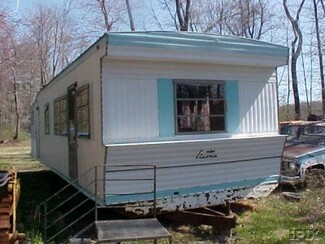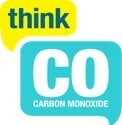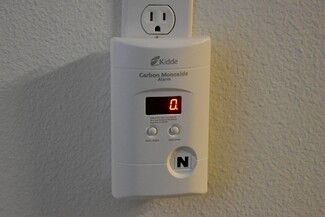Stay safe from Carbon Monoxide!

"Carbon monoxide can have a devastating impact, especially in places where many people may live within a small space, so it's extremely important that anyone working with Romany, Roma or Traveller communities is aware of the dangers as well as preventative methods," says a spokesperson for Friends, Families and Travellers.
Carbon Monoxide risks for the Gypsy, Roma and Traveller Communities
Most of us know that Carbon Monoxide (CO) is dangerous, but would you know how to spot CO risks or what to do to help prevent CO? … say the Gas Safe Charity
Introduction to the Gas Safe Charity
The Gas Safe Charity provides free resources and information to raise awareness of carbon monoxide (CO) risks the UK, via its Think CO training Programme. Using a mix of face-to-face and on-line Zoom workshops, combined with e-learning and written materials, the message that carbon monoxide is dangerous and can be prevented has been shared widely. Since 2015, when Think CO was started, the charity has trained thousands of front-line staff and volunteers from charities, local authorities, the NHS, housing associations, Fire and Rescue Services, as well a many less obvious organisations that support people living in CO vulnerable circumstances.

Implications for the Gypsy, Roma and Traveller Communities
Following a review of the charity’s reach and impact, it realised that its CO safety messages were not reaching the Gypsy, Roma and Traveller Communities as well as they could. We were aware that some people had died from CO poisoning from within these communities, so we began to find ways to connect and share our CO safety information. We made contact with the charity, and from there, connected to a network of people who provide support to these communities.
In January 2024, we ran a Zoom workshop about carbon monoxide for about 30 people from across the UK whose job roles involve working with Gypsy, Roma and Traveller communities local to them. This provided a useful focus group to help us take some steps to try and raise more CO awareness.
Key messages for Gypsy, Roma and Traveller Communities
1. Sources of CO
- LPG gas was recognised by everyone who attended the workshop as the highest potential risk. LPG gas appliances should be serviced every year by a Gas Safe Registered engineer to ensure they remain safe and are not leaking CO. Low levels of CO can make you feel poorly (like flu) and doesn’t improve while there is still CO in a room. The cold months have the highest risk, when the heating is on, and the doors and windows are closed.
- If a diesel or oil generator is being used or an engine is running, it is very important to ensure there is good ventilation and, ideally, it should only be used outside.
- If you use a solid fuel fire (wood or coal) or a BBQ, these can all give off CO. It’s important make sure the flue/chimney is always clear, as if it becomes blocked, it can send CO back into a room. Always use any BBQ outside.
Signs that you are experiencing CO poisoning might include symptoms such as having a headache that doesn’t go away, feeling sick (or actually being sick), breathless, feeling dizzy or confused. If there are high levels of CO, you can collapse, lose consciousness and you may die. Brain damage is a risk from exposure to high levels of CO, but also there are dangers from long-term, low-level exposure. People have felt unwell for months due to living in rooms with low levels of CO.

How to prevent CO poisoning
1. Get all your appliances serviced regularly - if you have a gas/LPG heater or cooker, get it checked once a year by a Gas Safe registered engineer. If it is a solid fuel burner, diesel generator or paraffin heater, also get those checked regularly.
2. Buy at least one CO detector/alarm - as you can’t smell, taste or see CO, the only way to tell if it is in the room is to have a CO alarm. If you are renting your home, since 2022 the law states that your landlord has to provide you with a CO alarm.
It is possible to get help from your water, electricity and gas provider if you are on their Priority Service Register. This is complicated if you are travelling regularly, but for people living on a static site, it should be possible. You can check if you are eligible and who to contact by going on this website: www.thepsr.co.uk.

Anyone reading this who is interested in attending one of our free online workshops, just click on this link Think CO Online Workshops - How to Book to find one that is coming up. If you have any questions or would like some materials or find out about our e-learning, then contact us on thinkco@gassafecharity.org.uk or go on to our website: www.gassafecharity.org.uk
By Gas Safe Charity: Photographs are sourced by the Travellers' Times and are not an endorsement of any products shown
(Lead stock photo by Markt3, CC BY-SA 3.0, commons.wikimedia.org)